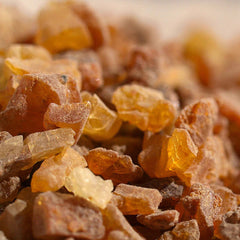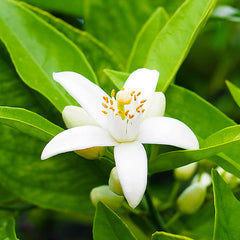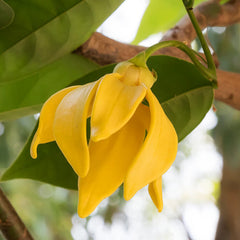What is the Difference Between Woody and Musky Perfumes?
As An Amazon Associate We Earn From Qualifying Purchases At No Extra Cost To You
Perfume lovers often encounter a wide array of fragrance descriptions, each evoking different images and feelings. Among these, the terms "woody" and "musky" frequently appear, but many are unsure about what truly differentiates them. Understanding these two popular fragrance families can enhance your ability to select scents that perfectly match your personality and mood. In this article, we’ll explore the distinctive characteristics, common notes, and overall impressions of woody and musky perfumes, helping you make more informed choices in your fragrance journey.
What is the Difference Between Woody and Musky Perfumes?
Defining Woody Perfumes
Woody perfumes are characterized by their warm, earthy, and natural scent profiles that evoke the essence of forests, trees, and natural landscapes. These fragrances are often associated with strength, sophistication, and a sense of groundedness.
The primary notes in woody perfumes typically include:
- Sandalwood – Creamy, soft, and milky aroma, often used as a base note for its longevity and smoothness.
- Cedarwood – Sharp, dry, and aromatic, providing a crisp, clean scent.
- Vetiver – Earthy, smoky, and woody with a hint of grassiness, adding depth and complexity.
- Patchouli – Rich, slightly sweet, and earthy, often giving warmth to the fragrance.
- Pine and Oud – Deep, resinous, and aromatic, contributing to the luxurious character of many woody scents.
Woody fragrances are versatile and often used in both men's and women's perfumes, although they are traditionally associated with masculine scents. They tend to have a moderate to long-lasting sillage and are suitable for daytime wear as well as evening occasions, especially in cooler weather.
Defining Musky Perfumes
Musky perfumes are distinguished by their sensual, warm, and intimate scent profile. The term "musky" originally referred to fragrances that contained natural musk, a substance derived from the glands of certain animals. Today, however, most musky notes are synthetically created to mimic the natural scent while being animal-friendly.
The key characteristics of musky perfumes include:
- Warmth and Comfort – Musky scents evoke feelings of coziness and sensuality.
- Softness and Subtlety – They tend to be less overpowering, blending seamlessly with skin chemistry.
- Intimacy – Musky perfumes are often used as base notes, providing a lingering, close-to-skin aroma that enhances personal allure.
Common musky notes include:
- Synthetic Musk – The primary component, offering longevity and a clean, slightly sweet scent.
- Amber – Adds warmth and richness, often combined with musk for depth.
- Vanilla – Sweet and comforting, enhancing the sensual feel of musky scents.
- Animalic Notes – Such as civet or castoreum, used traditionally but now mainly synthesized, to add complexity and depth.
Musky fragrances are popular in both men's and women's perfumes and are often used as base notes that anchor a fragrance. They are ideal for intimate settings, evening wear, and colder climates, thanks to their warmth and subtlety.
Key Differences Between Woody and Musky Perfumes
While both woody and musky perfumes evoke warmth and depth, they differ significantly in their scent profiles, notes, and overall impressions.
1. Fragrance Profile and Inspiration
- Woody perfumes draw inspiration from nature, forests, and trees. They emphasize earthy, dry, and resinous notes that evoke a sense of groundedness and strength.
- Musky perfumes focus on sensuality, intimacy, and warmth. They often have a soft, velvety quality that feels close to the skin.
2. Typical Notes and Composition
- Woody fragrances feature dominant notes such as sandalwood, cedar, vetiver, and patchouli. They often serve as the main scent or as strong base notes.
- Musky fragrances center around musk, amber, and vanilla, with musky notes acting as a foundation that enhances other scents.
3. Sillage and Longevity
- Woody perfumes tend to have a strong, long-lasting scent that projects well and lingers on the skin.
- Musky perfumes are often more subtle, with a close-to-skin aroma that may not project as far but remains intimate and persistent.
4. Suitable Occasions and Seasons
- Woody fragrances are versatile, suitable for daytime and evening wear, especially in fall and winter due to their warmth and depth.
- Musky fragrances are ideal for romantic evenings, casual outings, and colder months, thanks to their cozy and sensual nature.
5. Target Audience and Style
- Woody perfumes often appeal to those who prefer a strong, classic, and sophisticated scent.
- Musky perfumes attract individuals seeking intimacy, warmth, and a subtle signature scent.
How to Choose Between Woody and Musky Perfumes
Deciding between woody and musky fragrances depends on your personal style, occasion, and preferences. Here are some tips to guide your choice:
- If you prefer bold, earthy, and natural scents, a woody perfume might be your best choice. It exudes strength and sophistication and works well in professional and formal settings.
- If you enjoy warm, sensual, and intimate scents, a musky perfume could suit you better. It’s perfect for evening wear, romantic dates, or when you want a subtle yet compelling presence.
- Consider the season and occasion. Woody fragrances are versatile but especially suitable for cooler months, while musky scents are great year-round but shine in colder weather.
- Test and observe how the scent interacts with your skin chemistry. Fragrances can smell different on each individual, so personal testing is essential before purchasing.
Conclusion: Embrace Your Fragrance Identity
Understanding the differences between woody and musky perfumes empowers you to make more confident choices in your fragrance collection. Woody scents, with their earthy and robust aroma, evoke strength and sophistication, making them ideal for those who want to make a bold statement. Musky fragrances, on the other hand, offer warmth, intimacy, and subtlety, perfect for creating a sensual and personal aura.
Ultimately, both fragrance families have their unique allure and can beautifully complement different moods, occasions, and seasons. Whether you prefer the natural earthy appeal of woody perfumes or the soft, sensual embrace of musky scents, exploring these categories allows you to find your signature scent that truly reflects your personality. Remember to test different scents, consider your lifestyle, and let your fragrance choices tell your unique story.
Buy Perfumes - Best Online Retailers
Click For Affordable Inspired Perfume Alternatives
Click For The Best Niche Perfumes & Decants
Pheromone Perfumes - Confidence, Attraction & Appeal - Click For More
Home Fragrances & Candle Warmers - Click To Scent Up Your Spaces Today!



